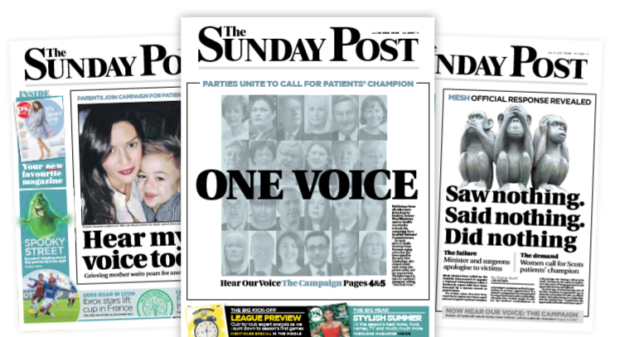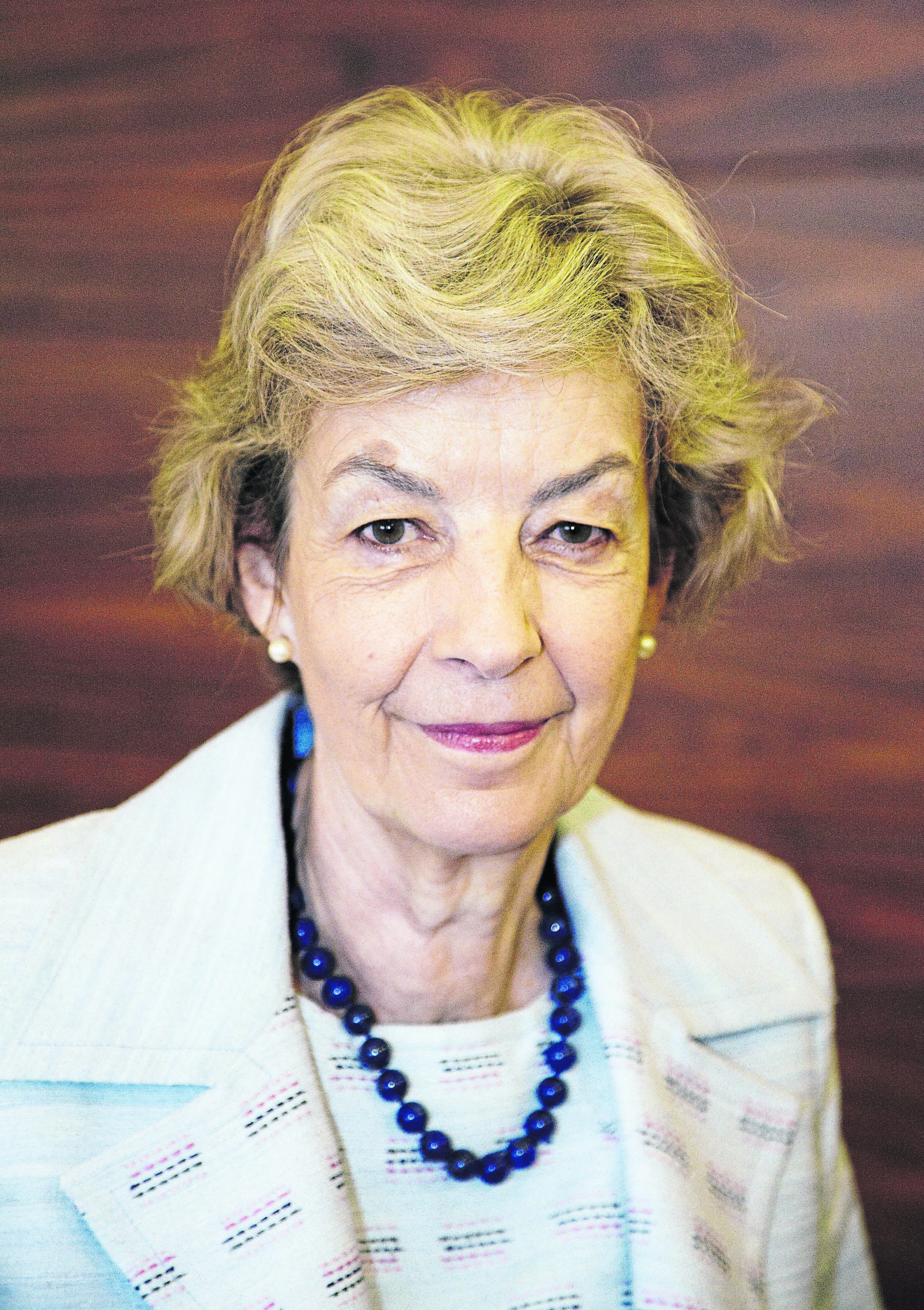
The author of a landmark review laying bare the betrayal of patients by the medical establishment has welcomed the announcement of a new champion for Scottish patients.
Baroness Julia Cumberlege hailed The Sunday Post’s Hear Our Voice campaign calling for the appointment after the First Minister announced plans for a Patient Safety Commissioner for Scotland.
She spoke of her “absolute delight” after Nicola Sturgeon revealed the Scottish Government intends to appoint a champion to give patients a louder voice and added protection.
We launched our campaign in support of Baroness Cumberlege’s scathing investigation into how the system failed women whose lives had been ruined by mesh implants and other medical treatments linked to birth defects in babies.
She called for a raft of reforms, including patients’ safety commissioners across the UK.
Yesterday, she praised the Scottish Government for taking action.
She said: “Throughout our review, we heard from many hundreds of women and families across the UK who have suffered terribly, their lives torn apart by harm that was avoidable.
“Had a Patient Safety Commissioner existed, I’m convinced the pattern of harm would have been detected sooner and acted upon more quickly. As it stands, the healthcare system is disjointed, siloed, unresponsive and defensive.
“The Patient Safety Commissioner will be the golden thread tying this system together in the interests of patients.
“I want to thank the First Minister for taking the initiative and leading the way and I congratulate The Sunday Post and the other voices campaigning for this.”
Gill Watt of Scottish Mesh Survivors also praised The Post for a series of reports exposing the treatment of mesh-injured Scots, adding: “Without that, we believe mesh implants would still be used, not just here in Scotland, but across the world.
The willingness to expose the truth behind the pieces of plastic that had destroyed hundreds of thousands of lives, changed how women will be treated in future.
“We look forward to seeing a Patients’ Commissioner giving us all a voice so other patients will not be failed so badly.”
Theresa Smith, from Greenock, who lost her 12-day-old baby Sophia in April 2017 at the new £842 million Queen Elizabeth University Hospital, said: “We won’t ever give up until we know the full truth about why our precious baby daughter died in our arms.
“The Sunday Post listened and has helped get a commissioner appointed to make sure someone will listen in the future.”
Powerful voices such as QC Lauren Sutherland, clinical negligence chair of the Pan European Organisation of Personal Injury Lawyers, praised our campaign and urged the Scottish Government to ensure patients play an active role.
She said: “The key important factors if change is to happen is that this post must be independent of government and any extraneous influence and also accountable.”
Professor of Medical Healthcare Law Alison Britton, of Caledonian University, said: “The Post played a major part in securing this outcome which allows Scotland the opportunity to take a leading role in its creation.”
She warned hearing patient voices must be a “fundamental aim”.
Professor Britton said: “Over the years, we continue to be shocked when evidence of patient harm comes to light and, in an attempt to resolve it, another organisation is introduced to address it. However well meaning, these are retrospective gestures that often fail to recognise recurring themes.
“What’s required are positive steps to change the culture in which these harms occur and it is imperative that any new role should have the requisite power to hold organisations to account if they do not listen, if they continue to ignore or simply do not believe what their patient is saying to them.
“It needs autonomy and it needs the scope and powers to effect significant and lasting change.”
Health Secretary Jeane Freeman said: “I welcome that Baroness Cumberlege has recognised the positive steps we have taken, and will continue to take, as a result of the report’s recommendations.
“It is clear to me there is still work to be done to ensure patient voices are listened to, and patients and members of the public feel they can effect change in the service. It is important that we listen to the views of patients and members of the public in determining what they want from a Patient Safety Commissioner .”

Enjoy the convenience of having The Sunday Post delivered as a digital ePaper straight to your smartphone, tablet or computer.
Subscribe for only £5.49 a month and enjoy all the benefits of the printed paper as a digital replica.
Subscribe © Josh Kearns/Shutterstock
© Josh Kearns/Shutterstock